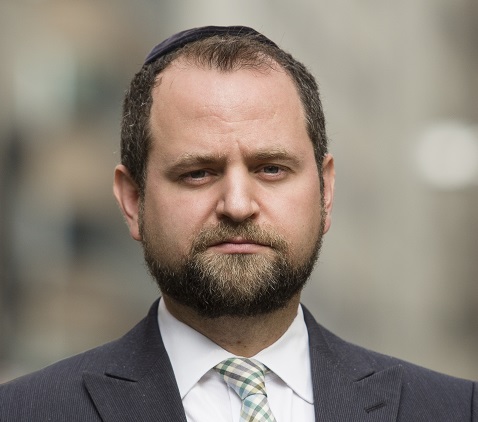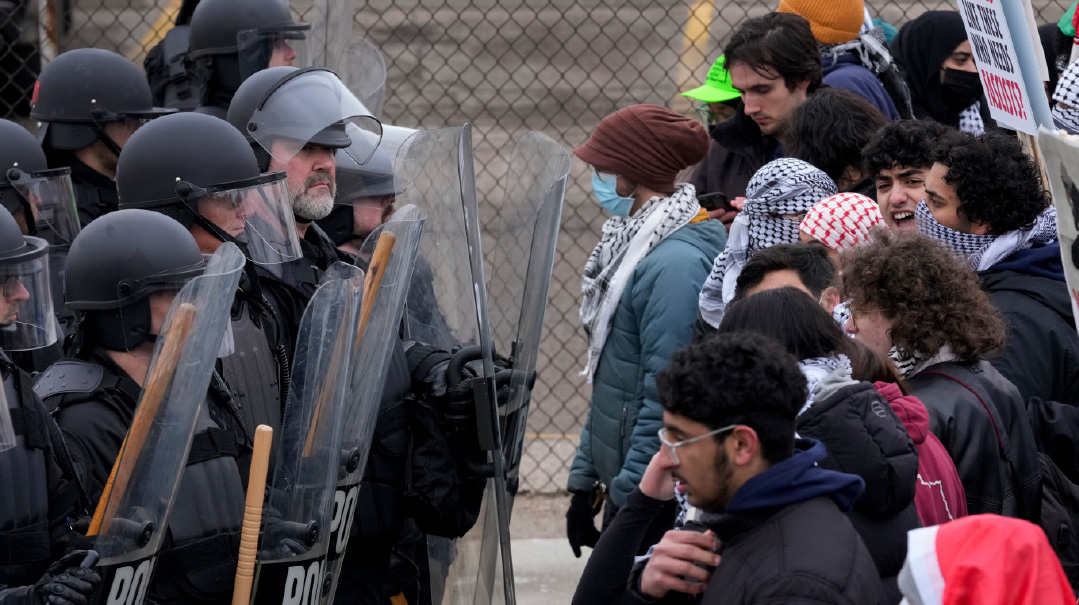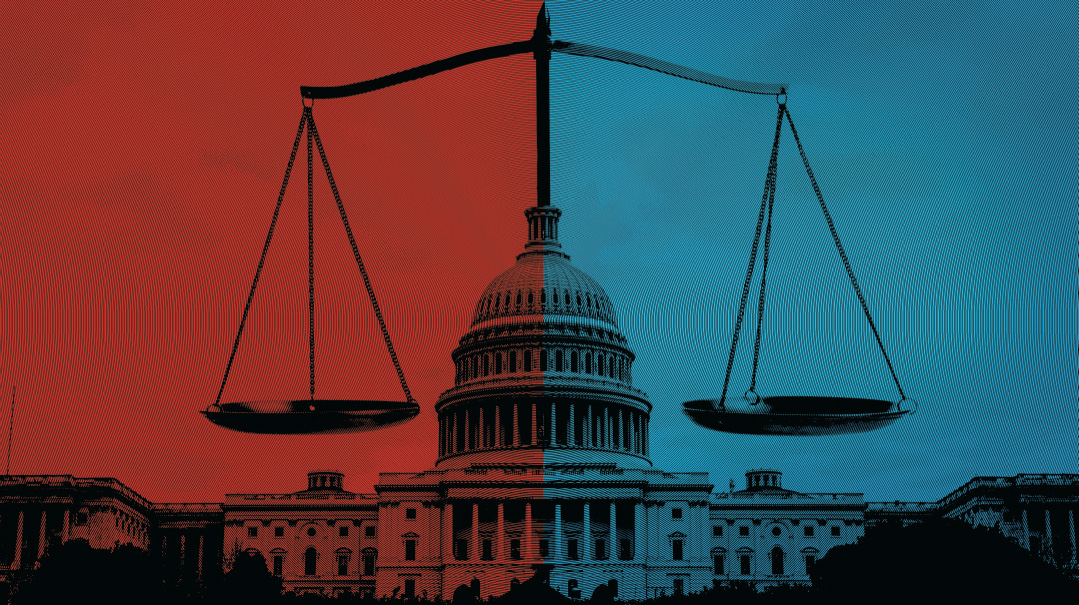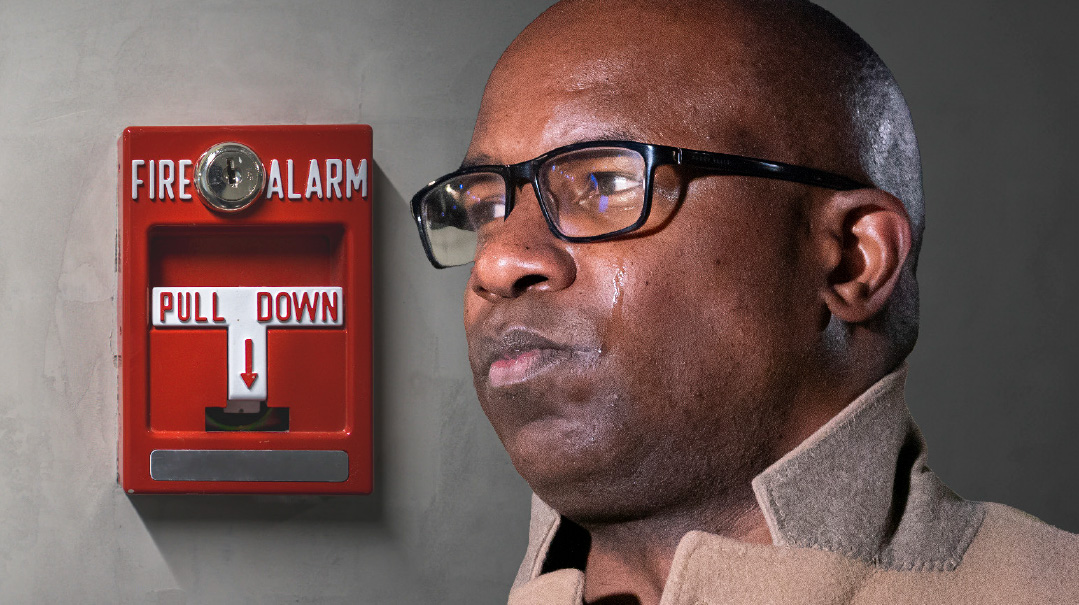Waves of Influence

We can be the difference at the polls. The question is: Will we?

Photo: AP Images
“Uncommitted” won. Biden lost.
That’s the narrative that’s being spun out of Michigan after returns in that state’s presidential primary were tallied. The vote for “Uncommitted” is a protest by Muslim advocates who urged their community not to vote for Biden due to his pro-Israel positions. In what has thus far been a predictable campaign, this protest vote can’t be ignored.
According to Reuters, Michigan has over 300,000 Arab-American and Muslim voters. This is a sizable portion of the electorate in a swing state that Biden won in 2020 by only 2.8%. Organizers of this protest vote set a goal of 10% voting “uncommitted” to convey their displeasure to the White House. The president still won the primary with 81% of the vote; but protest organizers surpassed their 10% goal, garnering over 100,000 votes, some 13% voting “uncommitted.” Organizers declared victory and predicted that it would be hard for Biden to win Michigan in November without their support.
Is that true? Politico rightly pointed out that “uncommitted” has done reasonably well in the last three Michigan presidential primaries, with 21,000 uncommitted votes in 2012 against President Obama. But according to unofficial results in Dearborn, home to one of the country’s largest Muslim populations, 56% voted for “uncommitted” to 40% for President Biden. There is clearly unhappiness in this voting population. Is it enough to impact 2024?
Democrats in every circle I’ve spoken to offer mixed responses. Some are concerned, based on the reality that there is no room for error in this campaign, and any group that is unhappy now could stage the ultimate protest vote by simply not showing up in what is expected to be a close election in November. Others are blasé, since Trump remains a lightning rod for controversy in that community for his “Muslim ban,” perceived in many Muslim communities, especially in Michigan, as targeting their friends and relatives.
But framing the argument this way conveniently ignores the Jewish community. Michigan’s large Jewish community isn’t protesting and will show up to vote in November, thus counteracting this protest to a degree. The Jewish community has an even larger population in swing state Pennsylvania. In other swing states such as Nevada, Georgia, and Arizona, there are also sizable Jewish communities that will turn out in 2024.
This argument also ignores how many Muslim voters will ultimately end up voting for Trump. The Associated Press Vote Cast exit polls of 2020 noted that Trump won 35% of the Muslim vote. Will that number rise? Muslim voters don’t only vote on this issue. And where will our community be? Will the 68% of the Jewish community who voted for Biden increase, due to appreciation for his initial strong stand on Israel? Or is the community going to send its own message in eight months based on where the US-Israel relationship stands then?
Finally, this argument centers around only a few states and ignores the rest of the country. Will the field of swing states expand? In an recent interview with Fox News, Trump seemed to believe so. Here’s what he said when asked if he could flip blue states in November: “They’re very unhappy in New York… You take a look at the crime in New York, it’s at record levels… I think New Jersey can be flipped. I think that Virginia can be flipped. I think that New Mexico could be flipped. And I think Minnesota could be flipped. And I’m not even sure that everything can’t be flipped.”
Could these states be flipped? Virginia and New Mexico seem more plausible, they last voted Republican only 20 years ago. New Jersey and New York seem like more of a stretch; New Jersey last voted Republican in 1988 and New York last did so in 1984.
Of course, all these speculations also ignore a maxim of presidential elections — not all Americans vote. In 2020, nearly a third of the country didn’t vote. That includes plenty of Jewish voters, Muslim voters, and traditional blue state voters. But if one group goes out there and exceeds expectations, then that will make political waves.
This was the thinking behind the Million Muslim Votes initiative launched in 2020. The group now has a goal of turning out two million in 2024. This is why the Poor People’s Campaign announced an effort to mobilize 15 million poor and low-wage voters ahead of the 2024 election. These groups know that the difference will be fought in the trenches, to register and turn out communities around specific issues in unprecedented numbers. Luckily for the Jewish community, there are already people planning similar efforts.
This past November, I was involved in an incredible campaign to turn out New Jersey voters in an off-year election that most weren’t paying attention to. The conventional predictions and expectations were set. Until the Jewish community turned out in unprecedented numbers in Deal, Lakewood, Bergenfield, and up and down the state, and upended everything.
I watched this again in the special election for George Santos’s Congressional seat in Long Island, where both campaigns vied for our vote, and I am witnessing it now in Westchester, where Squad member Congressman Jamaal Bowman is facing a Democratic primary challenge. The community is active like never before.
Mothers are volunteering. Fathers are making phone calls. The community understands that every new registered voter changes the calculus, upends traditional expectations, and creates a new political reality. Florida has done this time and again. Ohio did this in a critical special election in 2021. Our community knows how to do this, and 2024 may be our biggest opportunity, on the largest stage.
But it requires mobilizing and organizing Jewish voters in swing states like Georgia, Wisconsin, and Arizona. The 2020 election was decided by less than a percent in each of those states. It requires the blue states not to dismiss their potential as voters make their voices heard. It didn’t seem close for Jewish voters casting their ballots in the 2020 presidential race in places like New Jersey, Illinois, or Maryland, but these are also all states that have elected Republican governors in the last ten years. Many are organizing around issues and policies that the Jewish community cares about. But it requires a wake-up call; we can’t afford to stay home when our voices can make an impact.
We can be the difference at the polls. The question is: Will we?
Who Replaces McConnell
Senator Mitch McConnell is stepping down as Senate majority leader. This immediately launches the palace intrigue around who will take his place. There will be many names thrown around, but I think it comes down to two: John Cornyn (TX) or Rick Scott (FL), and here’s why. Scott put his name out to challenge McConnell in 2022 and received support. He has thus positioned himself well for a full challenge. Cornyn has served in Republican leadership for a longer period than Scott, which makes him a viable candidate. Both rocket to the top because of their conservative credentials.
(Originally featured in Mishpacha, Issue 1002)
Oops! We could not locate your form.







